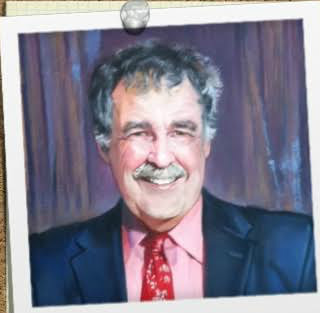It was not what one might call a typical Jewish family. She was a single mother with three children. One was a teenager and two were under five years old. Each child had a different father and the woman was living on SSI. The teenager had gone through our religious school and was now attending our Community High School Midrasha program, which was housed at our synagogue. Every Tuesday night during the school year, I would drive him home from Midrasha to their apartment, which was in a very tough part of town.
In his senior year, he told me how he wanted to go to college but his mother could not afford to send him. I knew he would be able to get some financial aid and money from the government, but I also had another idea. He could take out an interest free loan from Hebrew Free Loan. I called Hebrew Free Loan on his behalf, explained the situation and asked about his getting a loan. I was told that he would need a co-signer. I convinced them to let me be the co-signer even though Hebrew Free Loan generally did not allow rabbis to co-sign. He had no one else, I explained. Four years later, this young man graduated from university, thanks in great part to Hebrew Free Loan and the interest free loan that the organization gave him.
This week we are reading Parashat Mishpatim from the book of Exodus. In chapter 22:24 we read, “If you lend money to my people, to the poor who is in your power, do not act toward him as a creditor: exact no interest from him.” It is from this verse, this commandment, that the Hebrew Free Loan Association was founded. It is from this commandment that the concept of giving interest free loans to Jews came into being. Today, there are Hebrew Free Loans scattered throughout this country and the world. These organizations have expanded the mission of only giving to the poor of our people. Today, they give interest free loans for a range of things. They give loans so students can attend college, but they also give loans to people who wish to start businesses; to those who need to consolidate their debt; to those who have astronomically high medical bills; and even to those who need fertility treatments so they can have children. As if all this is not enough, a number of Hebrew Free Loans are beginning to help those who are not Jewish with interest free loans so they can attend college. It is through Hebrew Free Loans that the greatest of Maimonides’ eight degrees of charity is manifest— “The greatest level, above which there is no greater, is to support a fellow Jew by endowing him with a gift or loan, or entering into a partnership with him, or finding employment for him, in order to strengthen his hand until he need no longer be dependent upon others.” (Hilchot Matanot Aniyim 10:7) It is incumbent upon us to help a person help him/her self.
One of the foundations of Maimonides’ degrees of charity is maintaining the dignity of the person receiving aid, which Hebrew Free Loan is careful to do. This comes through in a wonderful Rashi on the last line of last week’s parashah—the transition-point between the majesty of the Ten Commandments and the legal principles of Mishpatim. Rashi writes, “Isn’t the matter of not ascending steps a kal va-homer [all-the-more-so argument]? If the Torah says regarding the stones of the altar, which are not sentient and are not particular about their disgrace, ‘do not ascend My altar by steps’–meaning do not treat them in a disrespectful manner–then your colleague who is made in the image of God and who is particular about being disgraced, how much more so should you treat that person with respect.”
Our tradition is very clear on the importance of not charging interest on a loan to the poor and needy. We read in the Midrash from Exodus Rabbah 31:4 the following: “A rich man who gives to charity and lends his money without interest is considered as one who observes all commandments.”
Each month, at our Hebrew Free Loan board meeting, I hear a person who received a loan tell his/her success story and how the loan they received was what enabled that person to reach his/her goal. It is then that I feel that I, through Hebrew Free Loan, am doing one of the greatest mitzvot of all–Pikuah Nefesh. I am helping to save a life.
Rabbi Steven A. Chester is Rabbi Emeritus of Temple Sinai in Oakland, CA and is on the Board of the Bay Area Hebrew Free Loan. For more information, he invites you to watch this video.

